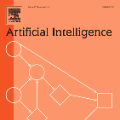Research around AI for Science has seen significant success since the rise of deep learning models over the past decade, even with longstanding challenges such as protein structure prediction. However, this fast development inevitably made their flaws apparent -- especially in domains of reasoning where understanding the cause-effect relationship is important. One such domain is drug discovery, in which such understanding is required to make sense of data otherwise plagued by spurious correlations. Said spuriousness only becomes worse with the ongoing trend of ever-increasing amounts of data in the life sciences and thereby restricts researchers in their ability to understand disease biology and create better therapeutics. Therefore, to advance the science of drug discovery with AI it is becoming necessary to formulate the key problems in the language of causality, which allows the explication of modelling assumptions needed for identifying true cause-effect relationships. In this attention paper, we present causal drug discovery as the craft of creating models that ground the process of drug discovery in causal reasoning.
翻译:自从过去10年深层学习模式出现以来,AI为科学开展的研究取得了巨大成功,即使是在蛋白质结构预测等长期挑战方面也是如此。然而,这种快速发展不可避免地显露出它们的缺陷 -- -- 特别是在理解因果关系十分重要的理性领域。其中的一个领域是毒品发现,需要这种理解才能理解其他被虚假相关关系困扰的数据。随着生命科学数据数量不断增加的持续趋势,上述谬误只会变得更为糟糕,从而限制了研究人员了解疾病生物学和创造更好的治疗方法的能力。因此,为了与AI一起推进药物发现科学,有必要用因果关系的语言来阐述关键问题,这样就可以对确定真正的因果关系所需的模型假设进行推敲。在本份关注文件中,我们把因果药物发现作为创造模型的手法,把毒品发现过程建立在因果推理的基础之上。




